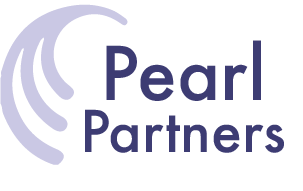Certainty is the holy grail today. Everyone is looking for that spot of safe ground that won't fall away from underneath. Yet everyone also knows that the old, certain ways of doing business will no longer work. Innovation is imperative, and many companies are trying to embrace the challenge. I applaud this effort and will offer one important caution. Beware of the Dunning-Kruger effect.
People have been experiencing the Dunning-Kruger effect forever, but the name has only begun to gain mainstream traction in the past year or so. The crux of the Dunning-Kruger effect is this: "Ignorance more frequently begets confidence than knowledge." Why? Because the more you know, the more you realize what you don't know. When you realize what you don't know, it's more difficult to project confidence about being a master of a topic. That's why the masters of a profession usually exhibit the most humility and see all new projects as a challenge.
In fields that are rooted in certainty, people can often see through confidence that is the result of inexperience. In fields that are rooted in uncertainty, such as innovation, organizational development, some types of scenario planning, and others, there are no traditional benchmarks by which to judge the true level of mastery. The result is that the ones who sound confident can be incorrectly perceived as more competent. The people and organizations who will thrive in the future will be the ones who can embrace the uncertain challenges that lie ahead. Most organizations will need help with this, and here are a few points you should consider when evaluating potential partners.
When reviewing a presentation of work, understand that the end result is often obvious in hindsight, and the presentation will show the logical, linear path toward the answer. When probed with follow-up questions, the true master should be able to talk how the answer became obvious. The master should be able to describe the other potential outcomes and why they were not chosen. The creative tension that the team needed to wrestle with should become apparent, as well as how it was resolved. Paths that were subsequently abandoned, and the changes that were needed along the way may be discussed (as long is it does not violate confidentiality).
On the other hand, the poser will stick to the linear story. It will be neatly tied up in a bow. It will seem as if the work was obvious and tension free throughout the process. The hard work will be described more in terms of the volume of work rather than the intellectual challenge within it. The poser may tell you with absolute certainty what your answer may look like even before you start the project, or may want to skip the beginning of the project to evaluate some "clearly obvious" solutions from the get-go.
Think about how your organization chooses partners to take on these types of challenges. The most important thing to remember is that you are looking to work with people who exhibit competence in dealing with uncertainty. You are not looking for people who talk about uncertain challenges with certainty, regardless of how comforting it may feel in the moment. Don't succumb to the Dunning-Kruger effect.
